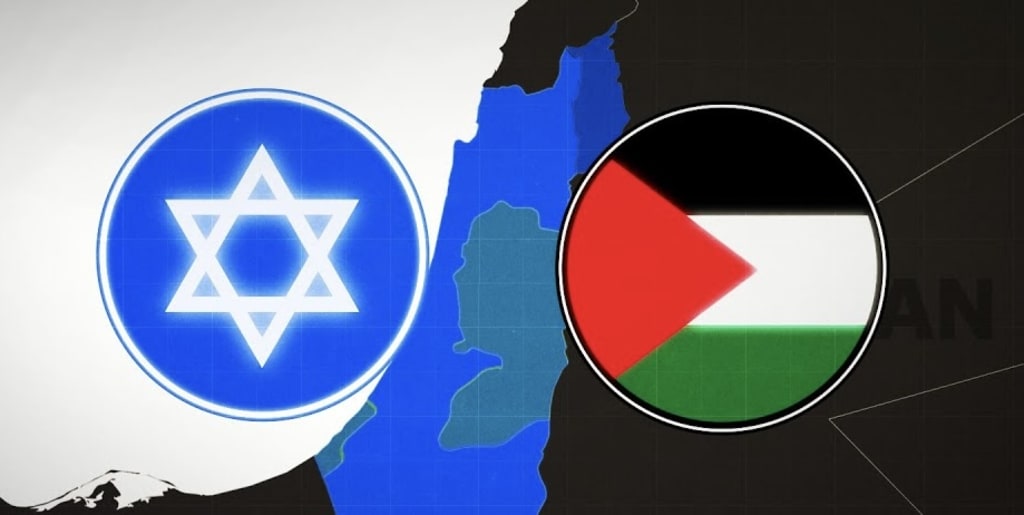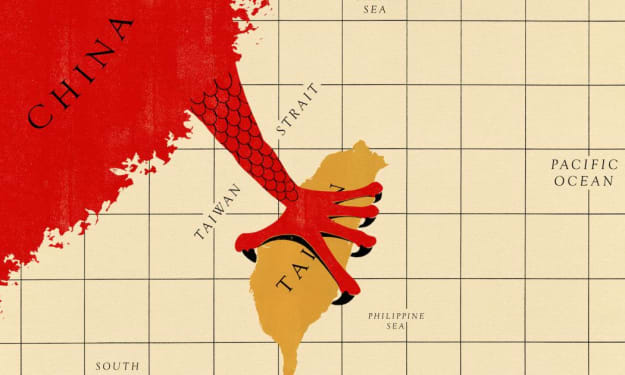The Century-Long Conflict Over Israel-Palestine 🇮🇱 🪖🇵🇸
The key events and issues surrounding the Israel-Palestine conflict

One of the most enduring conflicts of the 20th and 21st centuries has been the struggle between Israelis and Palestinians over control of the land encompassing modern-day Israel and the Palestinian territories. However, contrary to popular belief, this conflict is not rooted in ancient religious or ethnic divisions but rather emerged in the early 20th century from competing nationalist aspirations over the same territory. While religious sites important to Jews, Muslims and Christians exist in the region, the core of the conflict stems from two groups claiming sovereignty and the right to self-determination in what each calls their historic homeland. Around the turn of the 20th century, the region now known as Israel and Palestine had long been governed by the Ottoman Empire as largely diverse, religiously mixed communities lived in relative peace. However, two major developments began to sow the seeds of future conflict. First, a distinct Palestinian national identity was taking shape among the predominantly Arab population. Concurrently in Europe, the Zionist movement emerged among Jews, promoting the concept of a Jewish homeland and state in the biblical lands of Israel as a response to centuries of anti-Semitism and persecution. In the first decades of the 1900s, tens of thousands of European Jews began migrating to Ottoman Palestine with the aim of establishing settlements. After World War One and the fall of the Ottoman Empire, the British were granted control over the region through a League of Nations mandate dubbed British Palestine. Initially, the British allowed continued Jewish immigration and settlement which helped more than double the Jewish population by World War Two. However, as tension and violence grew between the Arab and Jewish communities over land and control, the British began restricting immigration in 1939. During this time, both Zionist militias and later the terrorist group Irgun formed to resist British rule and fight Palestinian Arab groups. The horrors of the Holocaust in Europe dramatically transformed the conflict, with world sympathy swinging strongly towards a Jewish homeland. In 1947, Britain withdrew and the newly formed UN proposed partitioning the territory into separate Jewish and Arab states. Jerusalem was to be internationally administered. While Jews accepted the plan, Palestinians and surrounding Arab nations rejected it as unfair colonial imposition. On May 14, 1948, the State of Israel declared independence but was immediately attacked by neighboring Arab armies seeking to prevent partition. In the resulting war, Israel not only secured its independence but also captured around 78% of mandate Palestine, displacing over 700,000 Palestinian refugees in the process. In the aftermath, Israel controlled what had been the British Mandate except for Gaza held by Egypt and the West Bank held by Jordan. For Palestinians, this marked the beginning of over seven decades of statelessness, refugee crisis and Israeli occupation of remaining Palestinian lands. During this time, over 850,000 Jews were also expelled or fled from Arab countries to Israel. Tensions grew again in 1967 when Israel launched a preemptive strike against Egypt and seized control of the Gaza Strip, West Bank, Golan Heights and Sinai Peninsula from neighboring Arab states. This brought Israel's occupation of the Palestinian territories and responsibility for the Palestinian population. The 1970s saw some progress as Egypt made a separate peace under the Camp David Accords, relinquishing the Sinai Peninsula to Israel. However, Israel's ongoing occupation of the West Bank and Gaza radicalized Palestinian national sentiment. The secular Palestinian Liberation Organization (PLO) turned to international terrorism against Israel while the radical Islamist group Hamas emerged in Gaza in opposition to both Israel and the PLO's willingness to negotiate. Periodic uprisings and violence continued into the 1980s and 1990s as Palestinians resisted the occupation through the First Intifada and terrorist bombings. Signs of hope emerged in the 1990s as Israel and the PLO tentatively moved towards mutual recognition and autonomy agreements in the Oslo Accords. But hardliners on both sides actively worked to sabotage the peace process through terrorist attacks. The 1995 assassination of Israeli Prime Minister Yitzhak Rabin by a far-right Israeli demonstrated how extremists use violence to stall compromise. Ongoing settlement expansion and delays in finalizing a two-state agreement also frustrated Palestinians. By 2000, the Second Intifada erupted amid a total breakdown in negotiations. The uprising caused over 1,000 Israeli and 3,000 Palestinian deaths by its end in 2005. The failure of negotiations and violent uprising shattered hopes for a settlement. Israel withdrew from Gaza in 2005 but maintained a blockade after Hamas took control the following year in a violent power struggle with the Fatah-led Palestinian Authority. The West Bank remains carved up by an ever-expanding network of unlawful Israeli settlements guarded by soldiers that has made a future contiguous Palestinian state seemingly impossible. Gaza and the West Bank remain internally divided under Hamas and Fatah control respectively, each territory suffering from high unemployment, poverty and humanitarian crisis under ongoing occupation and blockade. Over a century after the roots of the conflict took hold, Israelis and Palestinians remain deadlocked in a cycle of violence with no political will on either side for compromise. With over 2.5 million Palestinians in Gaza and parts of the West Bank living under occupation and 13 million more still denied a right to return as refugees, the unsustainable humanitarian costs of prolonging the status quo are immense. As extremism rises on both sides, most analysts agree that unless a just solution is found that allows both peoples self-determination and dignity, greater violence and instability will likely follow. The century-long struggle over Israel-Palestine remains one of the world's most intractable conflicts, crying out for urgent international action to forge a lasting peace.
About the Creator
Rakindu Perera
I’m a highly successful content writer with articles recognised by huge varieties of organisations. Also being in completion of a Bachelors Degree in Mechanical Engineering, I have the upmost know when it comes to exteme applications.






Comments
There are no comments for this story
Be the first to respond and start the conversation.